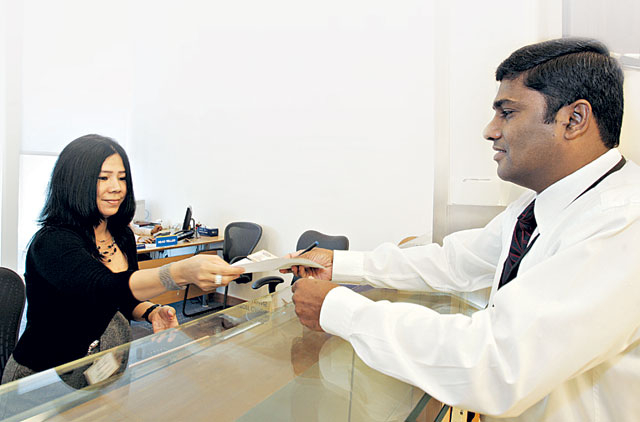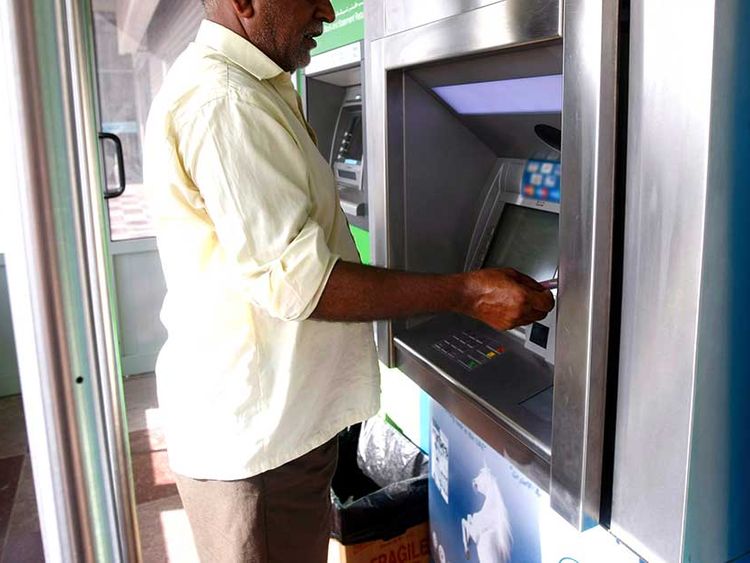
Dubai: Are you planning on opening a joint bank account with your spouse, family member or a business partner, or are you leaning towards separate accounts after managing your joint expenses proved hard?
Whatever the case may be, understanding what a joint bank account is and how it works can help you make a prudent decision for your finances.

How do joint accounts function?
Joint accounts operate much like normal accounts, so require two or more registered users to have them.
They can be permanently created, such as an account between two people to deposit their salaries into. These can also be temporary, such as a short-term account between two parties that contribute funds.
A bank account held jointly by two parties may be named with an ‘and’ or an ‘or’ between the names of the account holders.
Unless the account is classified as an ‘and’ account, both parties have to sign for access to the funds. If it is an ‘or’ account, then it is sufficient to have only one party sign to access the account balance.
Jointly owned accounts include bank deposit accounts, such as credit cards, current and savings accounts, and other financial products, such as mortgages, loans, and line of credit (an amount of credit extended to a borrower).
The joint status will authorise the full use of all those specified on the record, but also the liability for any expenses, fees, or charges incurred.

Opening a joint account is as easy as opening one single account. When the account is open, both parties should be present at the bank – whether it's a savings account or another product, like a mortgage or loan.
Joint accounts help save and spend better
Joint accounts have proven to be helpful with both saving – you can save toward shared goals, such as a new home or vacation – and spending. With a joint account, you and your partner can pay shared household expenses, such as mortgage, car payments, utilities and groceries, from the same place.
Withdrawing cash, writing cheques and making online payments from one account also allows both of you to see how money is being spent. That can help you budget together, if you’re managing your household expenses through that account.
With account activity visible to two people, financial planners also reiterate how there may be less chances to splurge on discretionary items with an added level of accountability to household spending.

But why are joint accounts better than separate ones?
Opening a joint account can help you take advantage of features that may not be available to you as an individual account holder.
That’s because pooling your money may help you meet the minimum balance requirements that qualify you for features like waived maintenance fees, a higher interest rate or rewards.
If you decide to go in this direction, opening a joint account is a similar process to opening an individual account.
As co-owners, both of you will be able to access and withdraw funds without the other’s permission, and each of you will be able to talk to the bank about the account without the consent of the other.
After you set up your account, you can decide how to manage and monitor it, including whether you want to sign up for online banking, which of you (or both) will receive account alerts, and if you’ll have shared or individual online banking profiles.

Keeping your accounts separate grants each person control over the money he or she earns. This is helpful if partners have different spending habits; being able to manage money in one’s own way is a plus. Separate accounts can also be helpful if both of your finances differ starkly.
For example, if one partner is carrying a lot of debt, separation of accounts can provide security for the other person’s credit score, at least until the debt is paid off. (Also, there is a chance third parties may take funds from a joint account to cover debt owed by one of the individuals.)
Linked accounts could be a third alternative
For some, linked accounts offer a middle ground between joint and individual options. A linked account is an account linked to another at the same financial institution so that funds can be transferred between them electronically.
For example, many people link their checking and savings account so that funds can be easily transferred electronically between them. You can use the same feature to help you and your partner.
You might consider opening a joint account but keeping your separate accounts, as well. If so, talk to your bank about linking both of your individual accounts to the joint account.

Linking lets families maintain independent control of their current accounts while sharing a joint account from which they can pay bills, manage household expenses, contribute savings, and handle other daily financial responsibilities.
This way, you have a shared space to deposit money for mutual expenses or to save for future goals. The reverse is possible, as well.
For example, if your company offers direct deposit of your income, you can have your pay go straight into a primary joint checking account every month. Then you and your partner can transfer a portion of your earnings to the individual accounts that are linked to it.
Your company may even offer direct deposit to more than one account, doing the work of dividing up your money for you.

Key takeaways
There are risks involved in opening a joint bank account, including the risk that each account owner has equal control over all the money, or the risk of debt collection by third parties.
However, joint bank accounts definitely can work for a wide range of consumers — especially couples who share household finances.
Another downside is if the account goes overdrawn, each joint account holder is responsible for the whole amount owed. This means you could end up being responsible for paying someone else’s debts.
So when you have a joint account, you share responsibility for any debts connected to that account. Be aware that if another account holder runs up a debt they can't pay back, you could all end up with a bad credit report.
While having a joint account is generally a good idea, be careful of what may happen if a partner withdraws money from the account without informing the other.








